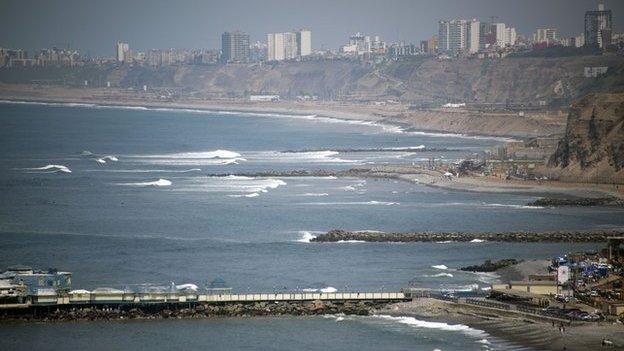Global group of Catholic bishops call for end to fossil fuels
- Published
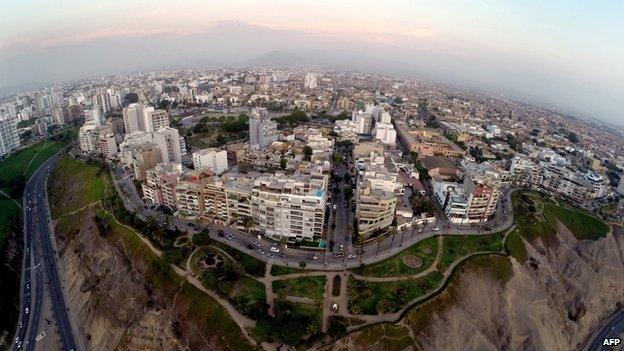
Negotiators are gathered in Lima, Peru, for this year's UN's climate meeting
Catholic bishops from around the world are calling for an end to fossil fuel use and increased efforts to secure a global climate treaty.
Catholics, they say, should engage with the process leading to a proposed new deal to be signed in Paris next year.
The statement is the first time that senior church figures from every continent have issued such a call.
Negotiators in Lima are currently trying to advance the outline text of an agreement at UN-led talks.
With 1.2bn people worldwide calling themselves Catholic, the church has considerable potential to influence public debate on any issue.
On climate change, some bishops have previously called for rapid decarbonisation and argued for moves to protect the most vulnerable.
But this is first time that such a global collection of senior priests have made such a call.
In their statement, the bishops say they want a "deepening of the discourse at the COP20 in Lima, to ensure concrete decisions are taken at COP21 to overcome the climate challenge and to set us on new sustainable pathways".
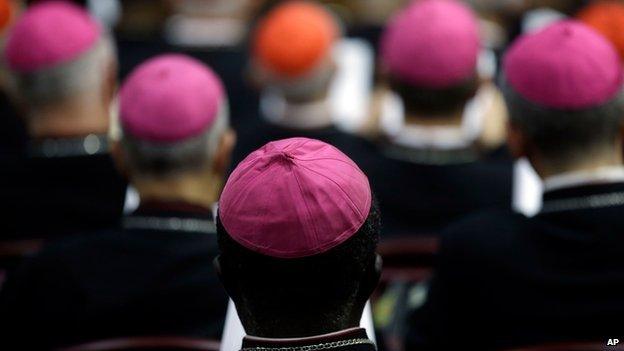
It is the first time senior priests have made such a call
Monsignor Salvador Piñeiro García-Calderón, Archbishop of Ayacucho, and president of the Peruvian Bishops' Conference, said: "We bishops from Africa, Asia, Latin America and Europe have engaged in intense dialogue on the issue of climate change, because we can see it's the poorest people who are impacted the most, despite the fact they've contributed the least to causing it.
"They're the ones who respect the planet, the Earth, the soil, the water and the rainforests.
"As the church, we see and feel an obligation for us to protect creation and to challenge the misuse of nature. We felt this joint statement had to come now because Lima is a milestone on the way to Paris, and Paris has to deliver a binding agreement."
The bishops argue that nations should aim to keep the rise in global temperatures below 1.5C.
This goes further than the current position of many negotiators who say that 2 degrees represents the threshold for dangerous climate change.
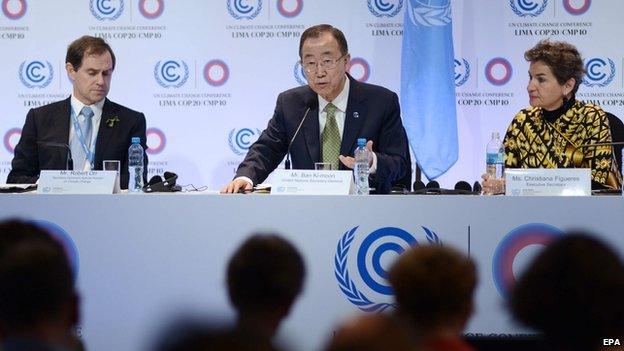
Many negotiators see 2 degrees as the threshold for dangerous climate change
The bishops say this is necessary "in order to protect frontline communities suffering from the impacts of climate change, such as those in the Pacific Islands and in the coastal regions."
As well as calling for the phasing in of 100% renewable energy, there is a strong focus on finance for adaptation in the statement.
The Bishops say that solving the climate challenge with a new treaty will be a key step towards a new economic approach.
"In viewing objectively the destructive effects of a financial and economic order based on the primacy of the market and profit, which has failed to put the human being and the common good at the heart of the economy, one must recognise the systemic failures of this order and the need for a new financial and economic order."
Ministers from around the world have joined their negotiators in Peru in an effort to drive forward the talks process. While the atmosphere has been positive, little progress has been made.
Environmental activists are planning a large scale demonstration in the centre of Lima on Wednesday in an effort to increase pressure on negotiators.
US Secretary of State John Kerry arrives in Lima on Thursday, the first time a senior US politician has attended the talks since President Obama went to Copenhagen in 2009.
Follow Matt on Twitter, external.
- Published1 December 2014
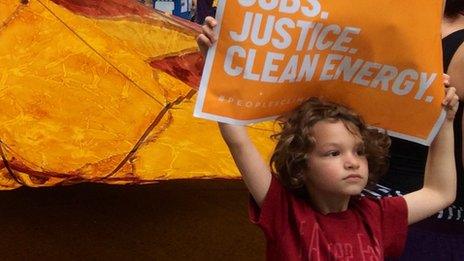
- Published8 December 2014
